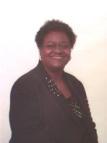|
The question of women in ministry has long been a controversial one. Should women assume the office of pastor? A look at the life and ministry of the Old Testament prophetess, Deborah will shed light on the answer to this question.
Background
After the death of Joshua, the Israelites forsook the Lord and followed other gods. Because of this, God allowed other nations to oppress them. Grieved by their oppression, the Israelites cried out to God. As a result of their cry, God raised up judges to deliver them. (Judges 2:7-8) Deborah was one of those judges. She was both a judge and a prophetess. (Judges 4:4)
Etymology
The word prophet comes from the Hebrew word navi. It means a speaker of oracles, one who [is] activated by a divine Spirit. A prophet of God is authorized to speak for God. He or she does not speak his own words, but what he or she hears from God. He announces a message at Gods direction [and discretion]. A prophet is a preacher. Therefore, Deborah was a preacher.
The word judge comes from the Hebrew word shaphat. It means one who governs, decides matters and pronounces sentences. It also means, to administer the right to rule. In Israel, judges ruled between the times of Joshua and Samuel. Judges decided matters, pronounced sentences, governed equitably and kept the land free of injustice.
The Hebrew word for judge is comparable to the Greek word kubernesis. It means government or dictatorship. (1 Corinthians 12:28) It also means one who rules with diligence. (Romans 12:8) The word kubernesis is the same as the Greek word episkopeo, which means taking the oversight. (1 Peter 5:2)
Conclusion
The words kubernesis and episkopeo, used in the New Testament, refer to the function of the office of pastor or bishop. Therefore, judges in Israel were comparable to New Testament pastors. Hence, Deborah was an Old Testament pastor.
| 
